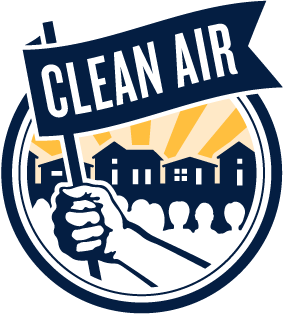El futuro de la Coca-Cola Tonawanda
Tonawanda Coke Corporation operaba una planta de fabricación de coque en 3875 Carretera del río Tonawanda, Nueva York desde finales de los 70. Por décadas, Tonawanda Coke causó tremendos problemas de calidad de vida en la comunidad, incluida la contaminación del aire y el agua., problemas de seguridad y salud de los trabajadores, muertes de empleados, y ahora un legado de contaminación. Tonawanda Coke compró el sitio de Honeywell, química formalmente aliada, a finales de los 70, Honeywell es responsable de una parte de los desechos heredados en este sitio.
En el estado de Nueva York, hay dos caminos principales para remediar sitios contaminados, el programa Brownfields del Estado de Nueva York o el Programa Superfund. Hay muchas distinciones entre estos programas.. Una gran diferencia es quién paga la limpieza..
El proceso NYS Brownfields permite a los desarrolladores iniciar voluntariamente un plan de remediación, y ser recompensado con créditos fiscales para disminuir la carga del costo.
El Programa Federal de Superfondo; un robusto, programa de ejecución diseñado para remediar grandes, sitios extremadamente tóxicos. Bajo esta designación, la Agencia de Protección Ambiental tiene la autoridad legal para comenzar la remediación y pagar la limpieza recuperando los costos a través de la parte responsable.
El conflicto sobre qué designación surgió cuando Honeywell contrató a e3communications a principios de este año para $3,750 por mes y comenzó a llegar a los miembros de la comunidad, organizaciones ambientales, y funcionarios electos para presionar por la designación de Brownfield. Ver el artículo reciente en Tonawanda Bee.
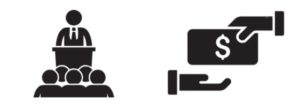 Según Canal 2 Noticia, Reps. Brian Higgins, D-Búfalo, dijo que su oficina ha tenido conversaciones con representantes de Honeywell sobre el futuro de la propiedad. En los últimos dos años, Higgins se ha convertido en uno de los principales receptores de donaciones de campaña de un comité de acción política afiliado a Honeywell., que había estado prestando dinero a Tonawanda Coke.
Según Canal 2 Noticia, Reps. Brian Higgins, D-Búfalo, dijo que su oficina ha tenido conversaciones con representantes de Honeywell sobre el futuro de la propiedad. En los últimos dos años, Higgins se ha convertido en uno de los principales receptores de donaciones de campaña de un comité de acción política afiliado a Honeywell., que había estado prestando dinero a Tonawanda Coke.
A fines de abril, Higgins le dijo a News 4 Investiga que apoyó una designación de brownfield para la propiedad Tonawanda Coke. Pero una semana después, Higgins cambió de posición. Mira la historia aquí.
“Esto ni siquiera es una llamada cercana,” dijo Judith Enck, ex administradora regional de la Agencia de Protección Ambiental de los EE. UU., defendiendo la designación de Superfund, a The Buffalo News en mayo 31, 2019.
En una declaración del 31 de mayo a The Buffalo News, Juan morris, Director de remediación global de Honeywell, dejó constancia de decir “El federal Superfondo programa es un programa legal más sólido. No tenemos problemas con esas personas que dicen, 'Oye, ese es un programa mucho más fuerte”. Honeywell es responsable de una gran parte de los desechos heredados en el sitio de Tonawanda Coke, operando la compañía hasta finales de los años 70 bajo su predecesor Allied Chemical.
Honeywell tiene un historial de conflicto con Tonawanda Coke con respecto a la responsabilidad de limpieza de la empresa. En 2015, Tonawanda Coke demandó a Honeywell por parte de los costos de limpieza heredados debido a las condiciones de su acuerdo de compra. Entonces, en 2017, Honeywell prestó a Tonawanda Coke casi 8 millones para pagar multas penales y costos de remediación. Tonawanda Coke ofreció la hipoteca del inmueble como garantía.
Historial y rentabilidad de Honeywell
Nacionalmente, Honeywell tiene una larga lista de soluciones medioambientales, seguridad y salud, y violaciones laborales. Con sede en Nueva Jersey, Honeywell es multinacional conglomerado empresa que fabrica una variedad de productos, brinda servicios de ingeniería y aeroespacial sistemas para consumidores privados a grandes corporaciones y gobiernos.
Ya que 2000, al menos 67 Se han iniciado acciones de cumplimiento ambiental contra Honeywell., resultando en más $100 millones en multas. Honeywell tiene antecedentes penales por violar la Ley de Conservación y Recuperación de Recursos (RCRA), incluyendo un delito grave por almacenar residuos peligrosos a sabiendas sin un permiso, poner a los empleados y a la comunidad en riesgo de exposición a materiales radioactivos y peligrosos en Benton, Illinois.
Honeywell también ha sido sancionado con más de $55 millones por más 50 violaciones a la seguridad y salud en el trabajo. En la planta de Baton Rouge de Honeywell, Honeywell fue declarado culpable en un tribunal penal por la muerte de 32 trabajador de un año Delvin Henry después de que abrió un cilindro mal etiquetado y sufrió quemaduras de tercer grado. El murió el día siguiente.
A pesar de los millones de dólares en multas y demandas, Honeywell sigue siendo muy rentable. Según Honeywell 2019 Declaración de Poder y Aviso de Asamblea Anual de Accionistas, darius adamczyk, CEO de Honeywell, la compensación total fue $19,246,604 en 2018. En 2018, Honeywell ocupó el puesto 77 en la lista Fortune 500, convirtiéndola en una de las corporaciones más ricas del mundo..
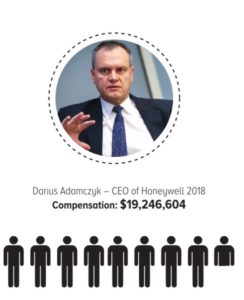 Le tomaría al trabajador promedio en el condado de Erie 8.5 vidas para ganar lo que gana el CEO Adamczyk en un año.
Le tomaría al trabajador promedio en el condado de Erie 8.5 vidas para ganar lo que gana el CEO Adamczyk en un año.
Además de la compensación ejecutiva, Honeywell también gasta una gran cantidad de dinero en empresas de lobby y contribuciones políticas.. De acuerdo con la Centro de Políticas Responsivas, Honeywell gastó más de $6 millones a través de los Comités de Acción Política (PAC) a los candidatos políticos en el 2018 elección, incluyendo al menos $159,923 a los candidatos en el estado de Nueva York. Honeywell International gasta habitualmente cerca de $7 millones cada año en esfuerzos de cabildeo federal.
El estado actual del sitio de coque de Tonawanda
En el otoño de 2018, el Tonawanda Coke declarado culpable de violar su libertad condicional penal relacionada con un 2014 criminal sentence. Poco después de este veredicto, liderazgo de la compañía se acogió al Capítulo 11 quiebra para reorganizar sus activos. La compañía dejó de operar en la instalación de octubre 14, 2018 y permanentemente desocupado el sitio.
En la actualidad, la Agencia de Protección Ambiental de EE. UU. está utilizando su autoridad a corto plazo bajo el Programa Federal Superfund para estabilizar el sitio y realizar evaluaciones iniciales. Se necesita una respuesta correctiva a largo plazo para garantizar la salud de los residentes que viven en los vecindarios circundantes..
Para obtener más información o participar en esta campaña, contactar a Rebeca en 852-3813 o en Rebecca@cacwny.org.
Comienza la remediación en el sitio de propiedades de East Delavan
El Departamento de Conservación Ambiental del Estado de Nueva York ha comenzado la remediación en una parte del antiguo sitio de American Axle en la comunidad Delavan Grider en Buffalo. Mira la cobertura en Canal 2 Noticia.
el sitio en 1001 East Delavan Ave. es uno de casi 400 sitios contaminados en el estado de Nueva York que contienen PCB. Los PCB hacen referencia a un grupo de productos químicos llamados bifenilos policlorados. Los PCB se utilizaron ampliamente en equipos eléctricos como condensadores y transformadores.. Los PCB fueron prohibidos por el Gobierno Federal en 1979 debido a las conexiones con el cáncer, daño hepático y problemas nerviosos. Una vez en el ambiente, Los PCB se pueden transportar largas distancias y se unen fuertemente al suelo y al sedimento..
En 1991, GM informó un derrame al DEC que condujo al descubrimiento de PCB en el aceite debajo de uno de sus edificios de fabricación.. Tres años despues, GM descubrió que los PCB se habían filtrado en una línea de alcantarillado de ladrillo debajo de la instalación que alimenta Scajaquada Creek cuando el sistema está inundado por la lluvia. Según documentos estatales., hasta 110,000 galones de desechos heredados existen debajo del sitio. GM vendió el sitio a American Axle en 1994, que fabricaba piezas de automóviles antes de declararse en quiebra en 2009.
Desarrollador Jon Williams, y East Delavan Properties compraron la propiedad contaminada en 2008, comenzando un tira y afloja con los funcionarios estatales sobre quién era responsable de la remediación del sitio.
Además de los residuos heredados, 1001 East Delavan es también el hogar de nuevos fabricantes industriales: Galvstar, que fabrica acero galvanizado especializado y lubricantes Niagara, fabricante de lubricantes especializado en lubricantes industriales y mayoristas. Grupo de contratación de especialidades de Ontario (OSC) Fabricación & Servicios de equipos, también propiedad de Williams, se basa en este sitio.
Residentes se unieron a Clean Air Coalition en 2015 aumentar la presión para acelerar la remediación. Se formó el Comité Directivo de American Axle, compuesto por los residentes que viven más cerca del sitio. Los miembros del Comité Directivo tuvieron numerosas reuniones con el estado, propietario, la ciudad de búfalo, y la Delegación Legislativa del Oeste de Nueva York en el transcurso de 3 años. Por la caída de 2018, su trabajo valió la pena y el NYDEC anunció que la remediación en un 5 la porción de acre del sitio se iniciará a través de una acción de ejecución Superfund.
Se construyó un sistema de bombeo y tratamiento y comenzó a remediar el agua subterránea contaminada a fines de abril.. Este sistema se centra en 5 acres de la 40 sitio de acres. Quedan preguntas e inquietudes con respecto a los planes de remediación para el resto del sitio..
Si vive en el área y desea obtener más información sobre el sistema de bombeo y tratamiento, comuníquese con el NYSDEC y al 716-851-7000 y pregunta por Chad Staniszewski, Gerente de proyecto.
Si quieres participar en esta campaña, póngase en contacto con el organizador de aire limpio, Cañón Shontae-Buckley en 716-852-3813 extensión 1.
El Instituto de Defensa está de vuelta en la ciudad!
El Instituto de Defensa, en asociación con la Coalición de Aire Limpio, regresa al oeste de Nueva York el 10 de junio!
Únase a nosotros para un poderoso día de formación, compartir actualizaciones sobre el panorama político en Albany, y conectarse con otros grupos de la región que trabajan en campañas legislativas a nivel estatal.
Ofrecemos dos sesiones — una por la mañana y otra por la tarde. Obtenga más información sobre cada uno a continuación y únase a nosotros para uno o ambos.
- Junio 10, 2019
- repaso matutino: 9:30al – 12:45pm
- Inmersión profunda en el panorama político de la tarde: 1:30pm – 5:30pm
- Localización: 2421 Calle principal #100, Búfalo, Nueva York, 14214
- RSVP aquí (fecha limite mayo 20)
Sesión matutina de repaso. Únete a nosotros desde 9:30al – 12:45pm para aprender sobre el poder y la autoridad del estado, por qué necesitamos ir a Albany tanto como lo hacemos, cómo maximizar nuestro impacto mientras estamos en Albany, y plazos legislativos y presupuestarios. Esta sesión es ideal para personas que son nuevas para trabajar en Albany y / o más reciente al Instituto de Defensa.
Inmersión profunda en el panorama político de la tarde. Únete a nosotros desde 1:30pm – 5:30pm para actualizaciones sobre los jugadores clave en Albany, ¿Cuál es el impacto de las elecciones de noviembre pasado?, y cómo está progresando la sesión hasta ahora. También escucharemos actualizaciones y profundizaremos en preguntas específicas de la campaña..
Tenga en cuenta que estas son dos sesiones separadas y son para personas que trabajan en campañas legislativas activas a nivel estatal.. Anticipamos más demanda de la que podemos satisfacer para este formación y aceptará participantes por solicitud de forma continua.
- Por favor responda todas las preguntas en la aplicación para mayo 20.
- No se considerarán las solicitudes incompletas.
- También asegúrese de informarnos sobre la aplicación de cualquier restricción dietética y la necesidad de asistencia con el cuidado de los niños..
- Si es aceptado, las capacitaciones en persona son gratuitas para los miembros y cuestan $25 por persona para posibles miembros. Invitamos a cada organización a enviar 2 participantes para asistir.
Quiere más información? Llame a Clean Air y pregunte por Linnea o Rebecca al 716-852-3813. O envíe un correo electrónico a info@cacwny.org
RESERVA! 10CENA ANUAL TH 30 DE MAYO!
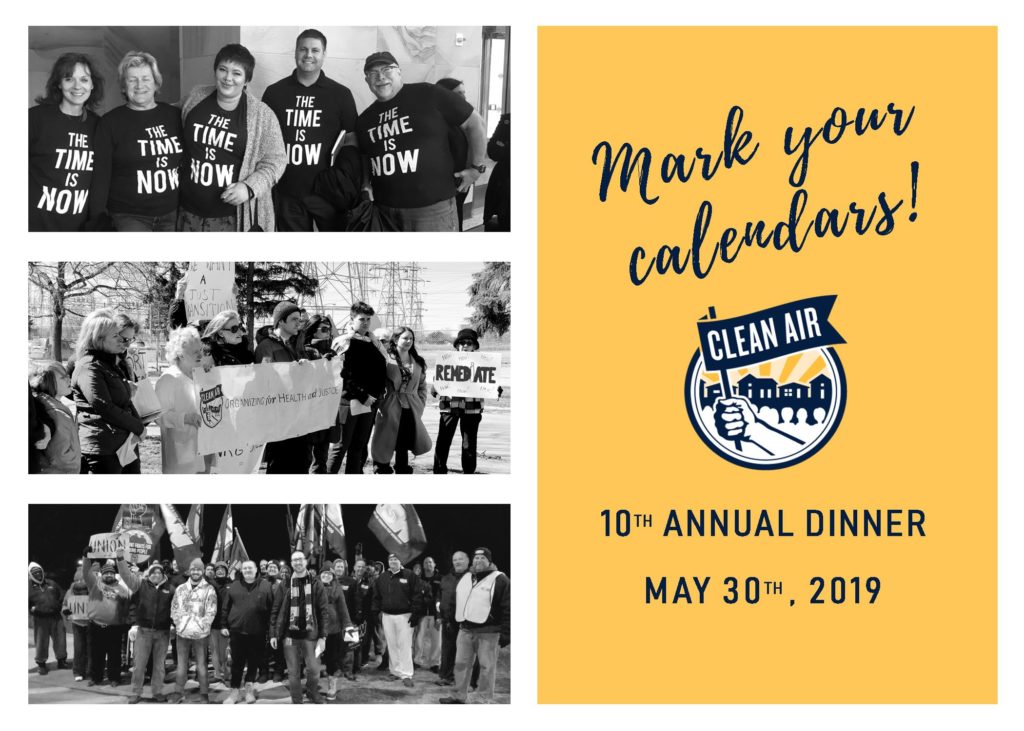
NOMINACIONES PARA EL OPEN 2019 Entrega Anual!
Cada año nuestra organización reconoce el trabajo de nuestros miembros y partidarios a nuestra Cena Anual. Nuestro trabajo se basa en el principio de que nadie puede lograr cualquier cosa sola. Trabajamos con mucha gente en muchos barrios que merecen el reconocimiento. A quién debemos brillar la luz en este año? Hacer que su candidatura hoy!
Felicidades Brian!
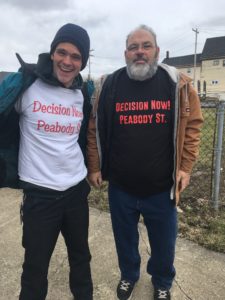 Nos gustaría anunciar que Organizador de la comunidad, Brian Borncamp se transfieren fuera de su posición en el Aire Limpio a una posición en el sector privado.
Nos gustaría anunciar que Organizador de la comunidad, Brian Borncamp se transfieren fuera de su posición en el Aire Limpio a una posición en el sector privado.Brian ha sido miembro del Aire Limpio ya 2013, participando activamente en la promoción y ejecución de los presupuestos participativos. En 2016 Brian se unió al personal de Aire Limpio apoyo a los equipos de campaña que luchan contra el miembro corporación Battaglia en Seneca Babcock y trabajando hacia la limpieza de PCP de otros productos químicos y en la antigua sitio de American Axle en Delavan Grider.
31 limpia Anual Aire Reunión de January!
Únase a nosotros en nuestra reunión anual para celebrar y prepararse para otro año de la organización! Nuestros miembros y socios se reunirán a partir de toda la región para aprender unos de otros, compartir el éxito y retos, y la visión de 2019!
Limpia Anual Aire sesión Jueves, 31 de de enero de 2019 5-7pm.
Refrigerios servidos a las 5 pm. Reunión empieza a las 5:30pm.
United Way del Condado de Erie Sala 102
742 Delaware Ave.. Búfalo, Nueva York
Nuestra reunión está abierta a cualquier persona que desee asistir, sin embargo, sólo los miembros de Aire Limpio son capaces de votar en la junta directiva de este año (Ver la pizarra debajo). Si usted es un miembro y no ha recibido su boleta por correo, por favor, póngase en contacto con Rebecca en Rebecca@cacwny.org. Si desea convertirse en un miembro hoy, puede hacerlo en línea aquí.
2019 Tarjeta de la pizarra
Los miembros del Consejo son elegidos anualmente. Todos los miembros de la junta sirven 3 términos del año. miembros de la junta cumplen las siguientes responsabilidades:
- Proporcionar orientación y asistencia en la implementación de las metas y objetivos estratégicos de la organización
- Para recaudar fondos y construir la capacidad de organización
- Para evaluar el Director Ejecutivo
- Para ser activo en al menos una placa y asistir a eventos de organización y reuniones de los miembros como poder
Los candidatos nueva junta (los siguientes candidatos de mesa están para su primer período de tres años)
George Boger es el coordinador de campo para la zona de la Federación del Trabajo oeste de Nueva York, ALF-CIO. George trabaja para mejorar la vida de y aumentar el poder de las familias trabajadoras, aportar justicia y dignidad al lugar de trabajo y asegurar la equidad social. miconomic la justicia y la organización es fundamental para el propósito de George en la vida. Su análisis es que con el fin de ganar cualquier cambio duradero reales, que tomará el compromiso de Trabajo para la comunidad, y el compromiso de la comunidad para Trabajo.
Volviendo candidatos a la Junta (los siguientes candidatos de mesa son para un segundo período de tres años)
Emily Terrana Es un orgullo Buffalonian, madre de dos y organizador de la comunidad desde hace mucho tiempo y educador. Actualmente trabaja como Especialista en Educación Movimiento PUSH de Buffalo y ha capacitado sobre cómo construir un movimiento para una transición justa en todo el territorio nacional e internacional. Ella ha sido miembro de la junta directiva de la Coalición de Aire Limpio de WNY desde 2016 y está dispuesto a continuar el trabajo con todos ustedes! Emily tiene un título en mujeres y de género de la Universidad de Buffalo y ha tenido algunos de sus escritos publicados en Seres, símbolos, y Sexualidades: Una antología Interaccionista. Emily tiene una pasión arraigada de género, el clima y la justicia económica y cree que no puede haber liberación para cualquiera de nosotros sin la liberación para todos nosotros.
Jennifer Yuhnke Carman es un nativo de Buffalo que se convirtió en un miembro de la Coalición de Aire Limpio en 2012 durante la campaña del lado oeste y participó activamente en la campaña de Presupuesto Participativo Buffalo. Ella ha servido en el Consejo de Administración durante los últimos tres años, que sirve como el Secretario de 2017 y Co-Presidente de 2018. Jennifer ha trabajado en el corazón agencia de vivienda asequible de los barrios de la ciudad, Inc. durante los últimos ocho años. Se hizo evidente que el corazón de la misión de la ciudad para crear saludable, calidad, vivienda asequible iría a perder si la lucha por la justicia social, equidad, y la salud pública no se da prioridad también en las comunidades Buffalo vive y trabaja en. Jennifer es excitado por la oportunidad de continuar trabajando con los miembros, personal, y la Junta de Aire Limpio a medida que seguimos para luchar y ganar.
We Support Tesla Workers!
Búfalo, NY - Organizaciones de Virginia Occidental a Montana, Pennsylvania to Kentucky, que consta de miles de miembros, unido a la Coalición de Aire Limpio hoy para mostrar su apoyo a los trabajadores de la organización de una unidad de unión a Tesla Gigafactory 2.
Poco después de canal local 4 WIBV dio la noticia de una campaña de organización hoy, una carta conjunta fue lanzado en más de una docena de organizaciones comunitarias ubicadas en las comunidades mineras de carbón en todo el país en apoyo de la unidad. (Lee la carta completa aquí).
La carta dice, “We support workers who are organizing a union at the Tesla Gigafactory in Buffalo, Nueva York. We see the unionization of Tesla, and of the renewable sector, como un estrategia para construir una economía de energía renovable justa y equitativa, una economía que ofrece carreras de sostenimiento generacionales como nuestras transiciones del sistema de energía “.
Situado en el corazón de la Rust Belt, el Tesla Gigafactory 2 es un fotovoltaica (PV) célula fábrica que produce tejas solares, que se ven como las tejas del techo negro convencionales pero contienen células solares. La instalación está ubicada en Buffalo, Nueva York, y construido en un terreno antes ocupado por los sitios República de acero y Hanna Donner Coke cerradas.
“La Coalición de Aire Limpio apoya a los trabajadores organizar en Tesla. Esta es una oportunidad increíble para mostrar al país lo que una economía verde sostenible puede ser similar para los pobres, la clase trabajadora y la gente de color. Estamos motivados y emocionados por esta oportunidad de construir algo nuevo que funciona para todos nosotros, no sólo los multimillonarios y desarrolladores,” Brett dice Linnea, Organizador de la comunidad en la Coalición de Aire Limpio.
Tesla era más que un nuevo negocio que viene a Buffalo -
Tesla era una promesa
La instalación Tesla no era sólo un proyecto de renovación financiada por el estado: Buffalo Tesla era una promesa de la nueva economía - puestos de trabajo que no sólo sostienen a nuestras familias sino también del entorno, puestos de trabajo que, literalmente, puede alimentar nuestros hogares y negocios.
se le dio el proyecto $750 millones de dólares en fondos de los contribuyentes para construir una planta de producción de energía solar del estado de la técnica situado en 1339 South Park Ave., Búfalo, Nueva York 14220. La $750 millones de obsequio, parte de Nueva York Gov. programa de Buffalo mil millones altamente criticado de Andrew Cuomo, es 1.5 tiempos de todo el presupuesto de la ciudad de Buffalo.
El proyecto se comprometió a proporcionar miles de puestos de trabajo en todo el estado. En el momento de la operación, gov. Cuomo garantizada 1,460 “puestos de trabajo directos de fabricación en las nuevas instalaciones," de acuerdo a una presione soltar emitido por su oficina. Occidentales neoyorquinos se les prometió programas de capacitación laboral y puestos de trabajo “camino” con salarios de sostén de la familia, tanto como $65,000 por año. Después de Tesla adquirió las instalaciones de la Ciudad Solar, la compañía anuncia ofertas de empleo para principalmente los puestos de entrada con salarios tan bajo como $14 Una hora y limitados beneficios.
“Esto es sobre el acuerdo que se comprometió a Western New York,” dijo trabajador y la organización miembro del comité Curtis Johnson, quien ha trabajado durante más de 30 años en la industria de fabricación, “El acuerdo fue empleos de alta carretera. Esa fue la promesa “.
“El estado invirtió $750 millones de dólares en Tesla y es imperativo que los residentes del oeste de Nueva York tienen la oportunidad para las carreras que sostienen las familias. Sindicalización en esta instalación es crucial para proveer puestos de trabajo con buena paga y beneficios. Nuestra comunidad ha invertido en Tesla. Es hora de Tesla invertido en nuestra comunidad,” dicho Rev. Kirk Laubstein, Directora Ejecutiva de la Coalición para la Justicia Económica.
La promesa comenzó a desmoronarse en el otoño de 2017, cuando noticia que U.S. Fiscal Preet Bharara había abierto una investigación sobre el proceso de selección mil millones de oferta Buffalo.
En julio 2018, Alain Kaloyeros, que supervisó algunos de Gov. principales proyectos de desarrollo económico de Cuomo como presidente del Instituto Politécnico SUNY, la organización no gubernamental vinculada a la construcción Tesla, fue declarado culpable de dirigir ilegalmente cientos de millones de dólares en contratos financiados por el estado de dólares a los amigos y aliados del gobernador. Un jurado federal encontró Kaloyeros culpable de dos cargos de fraude electrónico y un cargo de conspiración de fraude electrónico después de dos días de deliberación. Ayer fue condenado a tres años y medio de prisión.
Louis Chartrand, ex presidente del contratista con sede en Buffalo LPCiminelli, También fue encontrado culpable de conspiración de fraude electrónico y fraude electrónico. LPCiminelli recibió el contrato de varios millones de dólares para construir la planta de Tesla.
El gobernador no fue acusado de ningún delito.
Tesla Reports mejor trimestre para el Solar
En un reciente artículo de Bloomberg Businessweek, Tesla dice que ahora es superior a sus compromisos de contratación con el estado. Bloomberg negocio pasó a informar de que “Almizcle asumió una nota de optimismo en un reciente reporte de ganancias, jactándose de su ‘Mejor trimestre de la historia para la energía solar’ en términos de rentabilidad, asegurando al mismo tiempo accionistas que Tesla podría acelerar la producción de tejados solares en 2019.” U.S. notas de prensa almizcle que si cumple con los objetivos y el valor de las acciones de Tesla se eleva durante ese período de tiempo, eso “él podría neto de más de $50 mil millones.”
Mientras que los trabajadores y los miembros de la comunidad celebran la noticia de un trimestre rentable, que está en marcado contraste con los trabajadores se lleva a casa todas las semanas.
“Nuestro paquete salarial es mucho menor en comparación con otros trabajos de fabricación en la región,” dijo trabajador Rob Walsh. “Nos valemos más.”
De acuerdo con el Consejo de Desarrollo Económico Regional del Oeste de Nueva York 2018 Informe de progreso, el salario promedio de carrera avanzada de fabricación anual es $62,579, 114% más que el salario de partida en Tesla.
“Una unión es un beneficio para todos nosotros y nuestras familias, la comunidad en su conjunto,” dijo trabajador y la organización miembro del comité Pete Farrell. “Las personas con las que trabajo son personas de alta calidad, las personas que toman la iniciativa, y es por eso que estamos organizando “.
Labor, Asociación Justicia Comunitaria y Ambiental Forges nuevo camino
Como los efectos devastadores del cambio climático y el declive de la industria del carbón siguen dando forma a nuestras vidas y comunidades, la transición de nuestra economía energética se convierte en tanto cada vez más urgente, y económicamente inevitable. Mandato de la energía limpia del Estado de Nueva York dicta que 50% de la electricidad consumida provendrá de la energía renovable por 2030. La economía de la energía cambio en Buffalo es un reflejo de las tendencias nacionales, donde las inversiones públicas y privadas en energías renovables siguen creciendo.
A medida que nuestra economía y transiciones surgen nuevos lugares de trabajo, los trabajadores siguen enfrentando el mismo conjunto básico de las preocupaciones: una necesidad de salarios que pueden ayudar a las familias, seguridad en el empleo, beneficios y otras protecciones básicas. trabajadores Buffalo Tesla ver la sindicalización como su mejor oportunidad de valerse por sí mismos y sus familias mientras se hace el trabajo que puede estar orgulloso de. comunidad local y las organizaciones ecologistas han salido en los números para apoyar a los trabajadores de Tesla y la organización de esta unidad.
“Los trabajadores se organicen en Tesla están en la primera línea de hacer estas promesas a nosotros, a nuestra comunidad, Hacerse realidad,” dice de Aire Limpio Linnea Brett. “A medida que avanzan hacia la sindicalización, todo lo que estamos dando un paso adelante con ellos, haciendo la promesa de un nuevo, economía verde una realidad.”
“Quería trabajar con Tesla porque quería un trabajo en energía verde, un trabajo que puede cambiar el mundo,” dijo Rob Walsh, un trabajador Tesla y miembro del comité de organización de sindicatos.
###
An Open Letter from Coal Communities In Support of Buffalo’s Tesla Workers:
An Open Letter from Coal Communities In Support of Buffalo’s Tesla Workers:
We represent organizations from West Virginia to Montana, Pennsylvania to Kentucky, who live, trabajar, and organize in coal communities. For more than a century, our communities have been instrumental in powering the national economy, and have made heavy sacrifices to provide cheap electricity for the nation.
Our country’s energy economy is changing. For decades we have experienced the closing of coal mines in our communities followed by the retirement and decommissioning of power plants. This shift has resulted in massive job loss and the loss of revenue that has left many of our local economies struggling.
We support workers who are organizing a union at the Tesla Gigafactory in Buffalo, Nueva York. We see the unionization of Tesla, and of the renewable sector, as a strategy to build a just and equitable renewable energy economy, an economy that provides generational sustaining careers as our energy system transitions.
When workers join together to unionize they build the power to transform jobs into careers, earn the ability to support their families, and guarantee safer working conditions. We’ve witnessed the opposite in “right to work” states, where wages and working conditions have deteriorated, while income inequality has soared. We see the unionization of Tesla as an opportunity to create quality careers, careers with job security, and where workers have a say in their own working environment.
We know that an energy transition is inevitable, while a just energy transition is not. We call on our fellow environmental, community, and climate organizations to show real solidarity to union and worker justice fights, and support Tesla workers.
In Solidarity,
To Nizhoni Ani, Arizona
Western Colorado Alliance, Colorado
Appalachian Citizens Law Center, Kentucky
Kentuckians for the Commonwealth, Kentucky
Mountain Association for Community Economic Development (MACED), Kentucky
Ohio Citizen Action, Ohio
Center for Coalfield Justice, Pennsylvania
Eastern Pennsylvania Coalition for Abandoned Mine Reclamation, Pennsylvania
Ohio Valley Environmental Coalition, Virginia del Oeste
West Virginia Working Families Party, Virginia del Oeste
Western Organization of Resource Councils, Western Region of the United States
Northern Plains Resource Council, Montana
Alliance for a Better Utah, Utah
Appalachian Voices, Virginia
